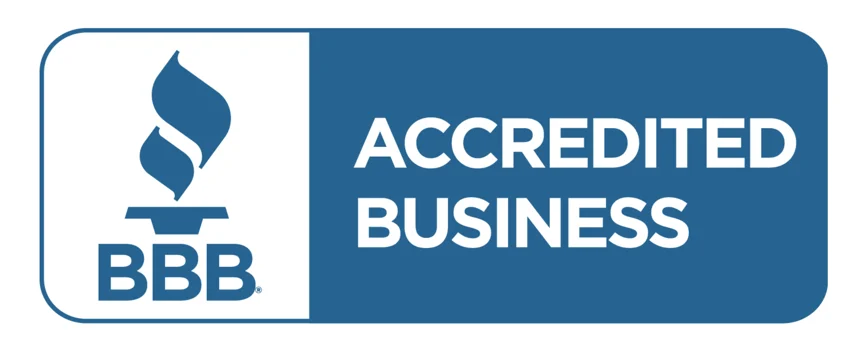Yes, but the process is more complicated than a traditional sale, and requires that you as the seller address the delinquent taxes before the sale can close — either by paying off the owed taxes beforehand, or using the proceeds of the sale to fulfill the debt requirements.
However, if the sale doesn’t cover both your mortgage and the owed taxes, things can get more complicated.
The important thing is that you have options, and if you need to sell a house with property taxes owed, this guide will help you through them.
What Happens When You Owe Property Taxes?
Property taxes are typically paid twice a year, usually once the winter and again in the summer. When you sell your home, you pay any taxes owed at the time of closing. If this date falls between the winter and summer taxes, the amount is prorated to the close date.
This gives the buyer a clean slate when they purchase the property.
If you have delinquent property taxes, to the point where the county or city has placed a lien, which is a claim against your property, you must address the owed taxes before the sale can close.
You can use the proceeds of your home sale in order to pay the taxes, but the process becomes more complicated if you can’t pay the tax and your mortgage with what you earn in the sale.
Can You Sell a House With Property Taxes Owed?
If you want to sell a house with property taxes owed, you can either pay back the tax before the sale or sell and use the home sale to pay the debt.
Pay Back the Taxes Quickly
If you have the funds in your savings or can liquidate the funds needed to pay the owed tax and have the lien removed, you should do so. The longer you wait to pay back the tax, the more interest it accrues, putting you in further debt. Once you’ve paid back the owed taxes, you can ask to have the lien removed from your home’s title.
The sooner you can pay back the taxes owed on your property, the better off you will be. If you can’t settle the debt before you sell a house with property taxes owed, you may still be able to go forward with a sale and move on from your home debt-free.
How to Sell a House With Property Taxes Owed
If you need to sell your home to pay back property taxes owed you may be able to use the home sale to fulfill your debt obligations.
Otherwise you may need to obtain a lien release or find the ideal buyer for your home: a real estate investor.
Pay Owed Taxes Using Home Sale Proceeds
The most common way to sell a house with property taxes owed is to pay back the taxes using the proceeds of the home sale. At the time of closing, the sale of the home will go toward the mortgage and then the lien.
A closing attorney will supervise the transfer of funds to ensure that the delinquent taxes are paid in full. Any remaining balance, after closing costs and Realtors’ fees will go to the seller.
A tax lien of $15,000 on your home, for example, can be handled by your closing attorney, who will deduct that amount directly from your sale proceeds—leaving you with $35,000 before closing costs and fees.
When the proceeds from your sale aren’t enough to cover both the mortgage and the owed taxes, you’ll need to bring the remaining balance to the closing table in order to satisfy the lien.
For homeowners unsure whether their home’s sale price will meet all financial obligations, it may be wise to explore other options before moving forward with the sale.
Obtain a Lien Release to Pay After Closing
In some situations, the taxing agency may grant a lien release called a “certificate of discharge”. This certificate does not forgive the debt or extend your repayment indefinitely.
What it can do is allow the lien to be released from the title of the property and transferred to you. You must still repay the owed taxes, but you’ll be able to sell your house and pay back the debt after the sale.
The disadvantage of this method is that it can take time, extending the closing of the sale and increasing the chance the buyer walks away. Most average home buyers will not be interested in a home with a lien and back taxes owed.
They don’t want to be responsible for paying extra taxes, and the closing process can take a long time if they have to wait for you to obtain a lien release for the sale to go through.
If you want to find a buyer to sell a house with property taxes owed, you need to find the ideal buyer for your situation: a real estate investor.
Sell to a Real Estate Investor
The best way to sell a house with property taxes owed is to sell to a real estate investor. A real estate investor has the time and capital to help you out of a tough situation, and won’t run for the hills if they see a lien on your title.
They have the expertise in real estate to give you sound advice and can help you find the best solution for your situation.
When you sell your home to a real estate investor, you can complete the sale on your timeline. You also won’t have to worry about making any costly repairs or changes to your home, hiring a Realtor, or waiting around while they secure financing.
Many real estate investors prefer to close on home sales quickly, with fast cash offers, so you can resolve your debt and close on your home sale quickly and without the hassle of a traditional sale.
If you owe taxes, but still want to sell your home, you have options.
Whether you can pay back the taxes you owe before selling your home, or use the home sale to pay back your debt, there’s a way to navigate this situation that will resolve your financial problems and help you move forward in a new home.
Need a Local Homebuyer You Can Trust?
If you’re trying to sell a house with property taxes owed and you live in Grand Rapids, Kentwood, Wyoming, Holland, Grand Haven, Rockford, or surrounding areas in Kent or Ottawa County, Hometown Development is here to help.
We specialize in buying homes in any condition, including properties with tax liens or financial complications.
Whether you’re in Cedar Springs, Hudsonville, Lowell, or even nearby towns like Middleville, Muskegon, or Jenison, our team knows the local market and can work with you to create a solution that fits your situation.
We make fair cash offers, close on your timeline, and take care of the details—so you don’t have to worry about costly repairs, drawn-out showings, or agent fees.
👉 Visit HometownDev.com to get started today and take the stress out of selling.















